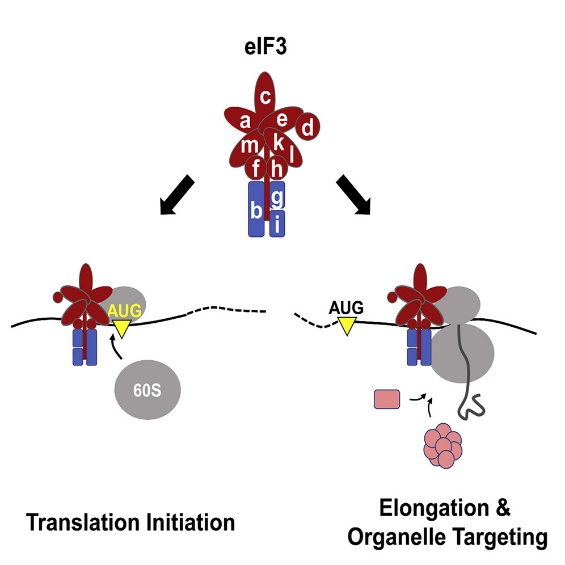Dieter A. Wolf | Molecular Cell: eIF3 Associates with 80S Ribosomes to Promote Translation Elongation, Mitochondrial Homeostasis, and Muscle Health
Highlights
eIF3—via eIF3e—promotes mRNA selective early translation elongation
eIF3e-dependent mRNAs encode membrane, secretory, and organelle targeted proteins
eIF3 travels with 80S ribosomes until nascent chains emerge for subcellular targeting
In vivo, eIF3e promotes mitochondrial function and skeletal muscle health
Summary
eIF3, a multi-subunit complex with numerous functions in canonical translation initiation, is known to interact with 40S and 60S ribosomal proteins and translation elongation factors, but a direct involvement in translation elongation has never been demonstrated. We found that eIF3 deficiency reduced early ribosomal elongation speed between codons 25 and 75 on a set of ∼2,700 mRNAs encoding proteins associated with mitochondrial and membrane functions, resulting in defective synthesis of their encoded proteins. To promote elongation, eIF3 interacts with 80S ribosomes translating the first ∼60 codons and serves to recruit protein quality-control factors, functions required for normal mitochondrial physiology. Accordingly, eIF3e+/− mice accumulate defective mitochondria in skeletal muscle and show a progressive decline in muscle strength. Hence, eIF3 interacts with 80S ribosomes to enhance, at the level of early elongation, the synthesis of proteins with membrane-associated functions, an activity that is critical for mitochondrial physiology and muscle health.
Link: https://www.sciencedirect.com/science/article/pii/S1097276520303889
